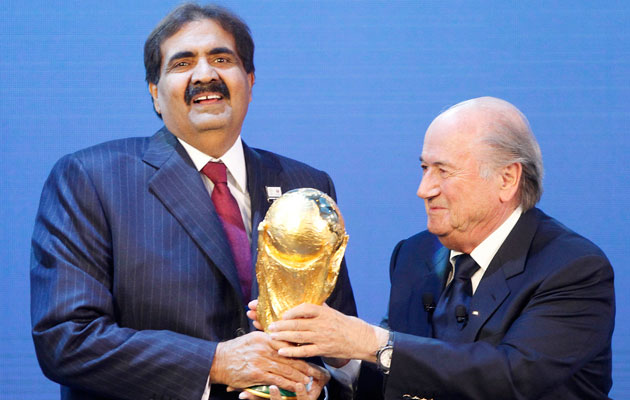Qatar World Cup whistleblower Phaedra Almajid has been rebuffed by FIFA over her complaint that ethics judge Hans-Joachim Eckert had breached an undertaking to her of confidentiality.
Almajid and former Australia bid communications director Bonita Mersiades were not named but identified, to all intents and purposes, in Eckert’s 42-page summary of American investigator Michael Garcia’s investigation report into the 2018-2022 World Cup bid vote scandal.
She filed an ethics complaint herself against Eckert but this has been rejected by the world federation’s disciplinary committee.
It remains questionable whether the committee could assume jurisdiction over the actions of Eckert and/or Garcia since the two men are joint heads of a system which is supposed to be ‘independent.’
If the disciplinary committee can rule for or against either man then clearly that ‘independence’ is a matter of fiction rather than fact.
Almajid had led international communications activities on behalf of the Qatar 2022 bid.
She was sacked abruptly partway through the campaign and long before the decisive vote in December 2010 in which the FIFA executive committee awarded the 2018 finals to Russia and 2022 to the Gulf state.
Subequently she published allegations of misconduct against the Qatar bid team then retracted them in August 2011. Later Almajid, in an investigatory interview with Garcia, reasserted her original allegations and said she had retracted only under duress.
A summary of Almajid’s involvement was published by Eckert in his summary, prompting her to complain about the breach of confidentiality which , she said, had been promised by Garcia.
The confidentiality controversy is one which will be set before the FIFA exco later this week when it meets in Marrakech, Morocco. Domenico Scala, chairman of the audit and compliance committee, has been charged with assessing how much of the Garcia report might be published without further breaches.
In a statement following the decision, Almajid said:
“The conclusion of the FIFA Disciplinary Committee dismissing my complaint against Herr Eckert for breaching my confidentiality is a transparent avoidance of a clear violation of its own rules.
“I cooperated with Mr Garcia’s investigation for over two and a half years under a clear, unqualified promise of confidentiality. He asked me for my confidentiality and repeatedly promised me mine. I kept my promise.
“Herr Eckert breached that confidentiality. I did not.
“The Disciplinary Committee’s avoidance of this undisputable violation is emblematic of its culture of self-protection.
“The Disciplinary Committee’s assertion that I had “gone public with [my] own media activities long before the publication” of Herr Eckert’s statement is an obvious dodge. My public statements were all made long before I entered into a confidentiality agreement with Mr Garcia. I made no public statements during the entire period of Mr Garcia’s investigation.
“I relied on FIFA’s promise of confidentiality and continued to honor my promise until Herr Eckert published his “Summary.” My recent public statements have only been made AFTER Herr Eckert’s identification of me in blatant violation of FIFA confidentiality rules.
“The Disciplinary Committee’s decision today is one more example of an organization whose rules are mere formalities meaning nothing. Woe be to any other person who cares enough to risk personal safety to report FIFA corruption.”







